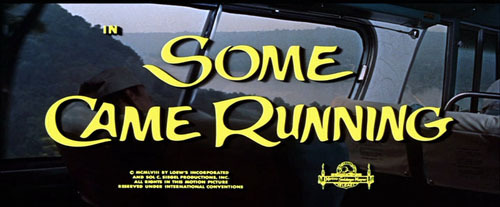 Social constructs regulate human behavior and often, subjectively, label and define the meaning of specific things, objects and occasions for a particular society. The downfall of this is that these constructs are formed by a prominent group of ruling people that disproportionately reflect the customs and values of marginalized populations, or abstract populations. Once the social construct is set in stone, the individual that has a difficult time assimilating with the laws of the construct will be seen as the inferior, the degenerate who is not only unable but unwilling to adapt to the normalcy of the morals, values, traditions and customs of a given society.
Social constructs regulate human behavior and often, subjectively, label and define the meaning of specific things, objects and occasions for a particular society. The downfall of this is that these constructs are formed by a prominent group of ruling people that disproportionately reflect the customs and values of marginalized populations, or abstract populations. Once the social construct is set in stone, the individual that has a difficult time assimilating with the laws of the construct will be seen as the inferior, the degenerate who is not only unable but unwilling to adapt to the normalcy of the morals, values, traditions and customs of a given society.
For example, you may remember small bits of yourself at age three when you were the supreme being, freely existing in a world full of enchantment. You may better remember yourself at age six, when you, in all innocence, had everything figured out, even though you were taught to adopt specific behavior patterns, which, essentially, were carefully selected for you by your parents and all other beings involved in your upbringing. Then came along the teen years that seemed to straggle along at a snail-like pace. They were the years that dragged like centuries. They remain the years downplayed by the youth, only to reminisce about after the first years of independence have passed, time that has accumulated with ease. Suddenly, five years have come and gone. Where did the time go? The question is asked in oblivion, but knowingly, warnings were given from elders about experiencing such sentiments with the coming of growth and maturity.
If only you’d been taught in school about this complexity called “social constructionism”—that finding your place in the world will feel a lot like conforming and settling for ideals and values that are not your own—ideals and values routinely passed down from generation to generation, from parents, teachers, councilors, youth leaders, coaches, and even TV sitcoms. But the master level that is adulthood is now here. Whatever connotes from the word “adulthood” is mostly socially engrained. Likely, you learned that adulthood begins at age 18, and in some places 17 fits the script, too. Public, as well as private institutions, have constructed an ill-mapped guide to prep the adolescent for those years to come. Americanism preaches that at age 18, you should move out, maybe join the military, engage in the work-force, pay taxes, depict the mold of a fine adult and have those virtuous traits instilled into the backbone of your still-maturing identity (but with all of that said, you’re still not adult enough to buy or consume alcohol, though you’re adult enough to be sent overseas to watch the annihilation of your fellow combatants and foreign civilians). At random, you recall what life was like at age five, and it’s daunting, because in present, you’re far from five: you’re 25, realizing that everything isn’t set in stone like it should be, according to society’s constructs. Some trivial things have happened along the way, causing a career set back which is the derivative that also caused you a financial set back. You’ve made some compromises for the sake of family, a girlfriend, or a boyfriend, and you’ve been taught that this isn’t a matter you should complain about, but that you should take up the cause with great stoicism. Compromises come by the plenty. Maybe, at an early age it was infused in you to substitute furthering your education to immediately start working to develop a strong work ethic. Whatever the case, a dilemma stands at the forefront of the passage that should serve as the avenue to your individual excellence. In contrast, the various constituents that long ago made up your identity have become distorted. The self-image is skewed. The future is entirely indistinguishable. These issues are unsettling and disrupt the intelligent phases of thought and reason.
These feelings surface because of social constructs. It’s part of American culture. It’s part of many cultures. Way before you were born, or your parents, or grandparents, ideals assimilated and then after not much consideration, they became widespread. Now they’re part of a conventional sociology that many people follow, but one that the black sheep still tend to steer away from. However, the identity crisis emerges as the black sheep try and dissect themselves, thirsting to figure which building blocks need to be removed to better imitate the conventional social doctrine.
It’s not bad to question yourself. It’s not bad to feel bad about it. It’s only bad when one implements constant comparison… to the doctrine, to the people and the constructs. There are variating modules of success and excellence. Choose your own and live your life according to it. Your excellence doesn’t have to fit a generic mold. Success is an intrinsic part of individual aptitude, however, it has been instilled in people that success should be measured against other segments of population. And thus, the identity crisis comes from this deep-rooted paranoia. Something or someone made you feel inadequate. But the hiatus that stands before you, even the panic and paranoia, are elements of an episode that are temporary.
You’re identity will come out of crisis as soon as you realize that the widespread doctrine that is pursued is a mechanism used to maintain the herd. Social constructs and social norms easily blur the identity, especially in a world full of followers. You must always remember that you belong to the wilderness. Despite society screaming in your ear that you’re doing it all wrong, you should continue along with your vision, toss the conventional tools and methods if you wish to not use them, incorporate more gray-scale techniques, explore the alternative, and take back your damn identity once and for all.
Share this:





